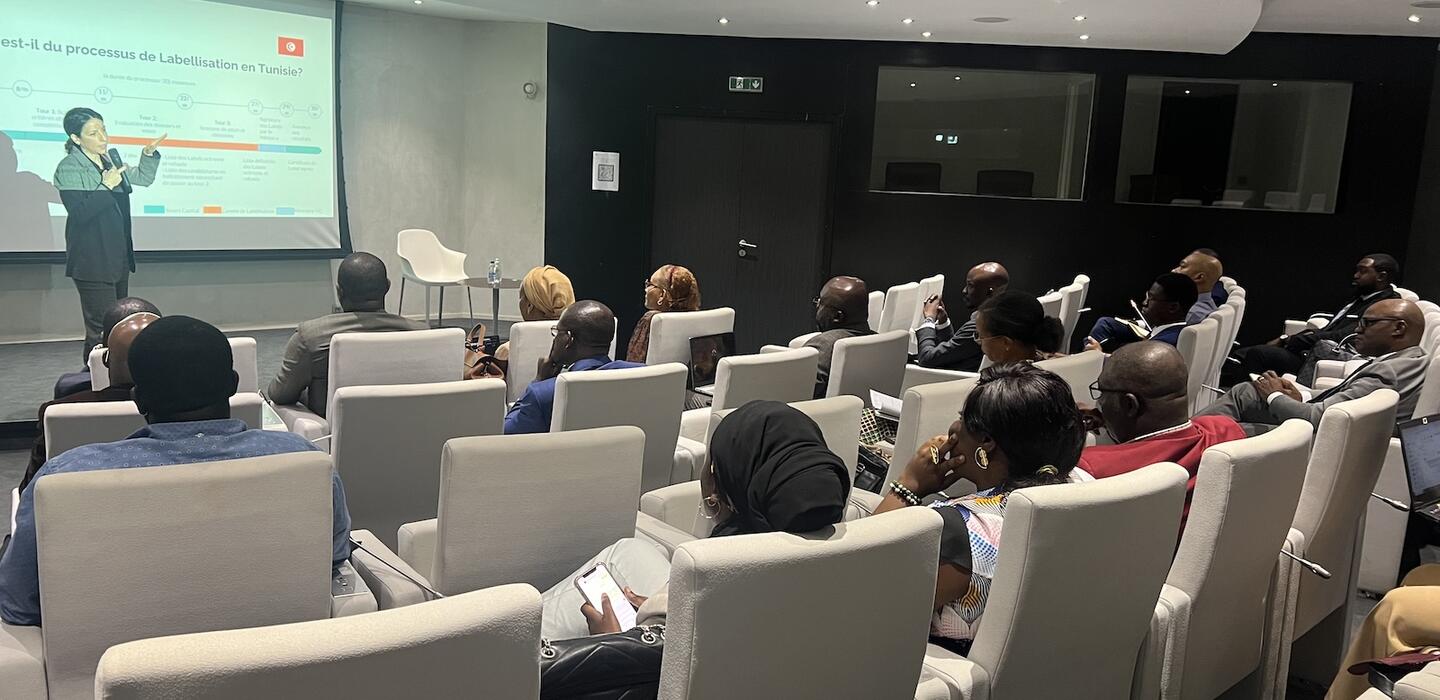
The Startup Act takes shape in Côte d’Ivoire
Adopted in November 2023, the Startup Act continues to roll out in Côte d’Ivoire. From 26 to 27 March, in partnership with the NTF V FastTrackTech project, the Ministry of Digital Transition and Digitization organized a roundtable on implementing the Act.
A round table to speed up operational implementation of the Startup Act
Entrepreneurship creates jobs. And it contributes to sustainable, inclusive economic growth, while improving living conditions. Against this backdrop, the Startup Act provides a lever to facilitate the launch and development of companies with high growth and innovation potential.
The Act creates a ‘label of merit’ to designate start-ups, and gives them a favourable legislative and regulatory framework. A round table was held in Abidjan in March, under the Ministry’s leadership and in collaboration with the FastTrackTech project under the Netherlands Trust Fund V (NTF V). Entrepreneurs, associations and political decision-makers gathered from all over the country to discuss how to effectively implement the law.
‘In Côte d’Ivoire, 70% of the population is under 35, which represents a major challenge for employment. Innovative entrepreneurship remains the most viable solution for curbing youth unemployment and empowering women,’ said Florence Fadika, technical advisor to the Ministry.
‘While the digital economy currently represents 3% of our national GDP, the World Bank predicts it could grow to 10% by 2050. This is why we want the Ivorian Startup Act to quickly become a concrete and operational reality for our digital start-ups. This meeting gives us the opportunity to dialogue with players in the ecosystem and move forward together,’ she said.
Defining the framework for the Côte d’Ivoire Startup Act
The law is inspired by a similar law in Tunisia, which Côte d’Ivoire has adapted to its needs.
‘Tunisia's experience paved the way. But we need to consider our local reality. The Startup Act should enable our national digital champions to be recognized and certified,’ Fadika said. ‘But many start-ups are not yet at that stage. So we need to act further upstream, to give young talent the means to meet the requirements for certification. The Ivorian Startup Act must be part of a continuum of support.’
Now work is underway to formalize the eligibility criteria and decide how companies will qualify as a ‘start-up’. Several proposals emerged from the round table. A new online platform would enable start-ups to complete the registration and qualification formalities. Another proposal suggested creating a specialized body to register and support start-ups. The Fondation Jeunesse Numérique could take on this role.
‘Since 2016, our group has worked to raise awareness of digital entrepreneurship among Ivorian youth, to find innovative projects and support their development. We have incubated 300 projects, accelerated 60 start-ups and reached 7,250 young people in 21 regions of the country. We are awaiting the official decree which will clearly state our action within the Startup Act,’ said Linda Vallée, Director of the Foundation and key organizer of the round table.
Through its Startup Act, Côte d’Ivoire has very clear ambitions: to occupy a leading position in West Africa's digital ecosystem.
‘The momentum is there. This meeting enabled all stakeholders to express their opinions, so that the start-up law can be deployed in concrete terms,’ Vallée said. The next step is to finalize the application decrees for the law at Ministry level.
About the project
The Netherlands Trust Fund V (NTF) program (July 2021 – June 2025) is based on a partnership between the Netherlands Ministry of Foreign Affairs and the International Trade Centre. NTF V supports SMEs in the digital technology and agribusiness sectors in Benin, Ivory Coast, Ethiopia, Ghana, Mali, Senegal and Uganda. Its ambition is to contribute to an inclusive and sustainable transformation of agri-food systems partly through digital solutions, to improve the international competitiveness of local tech start-ups and to support the implementation of the export strategy of IT&BPO companies.

















